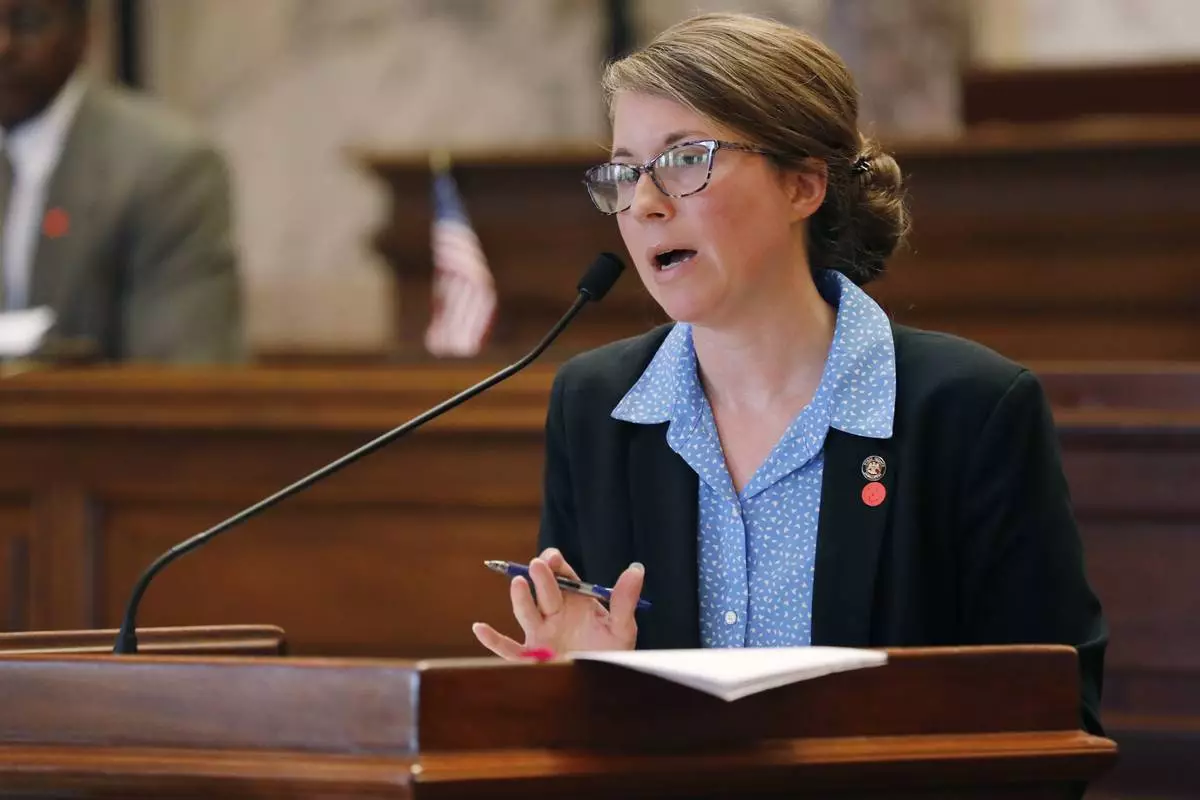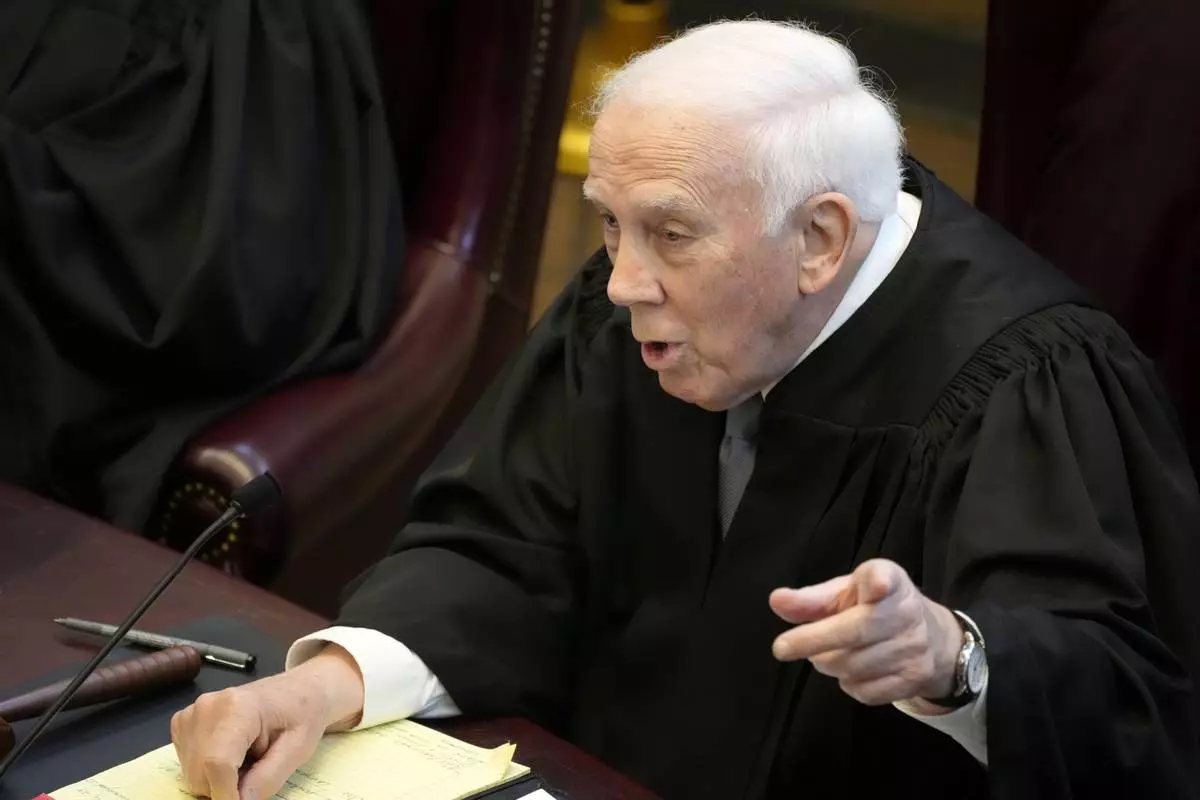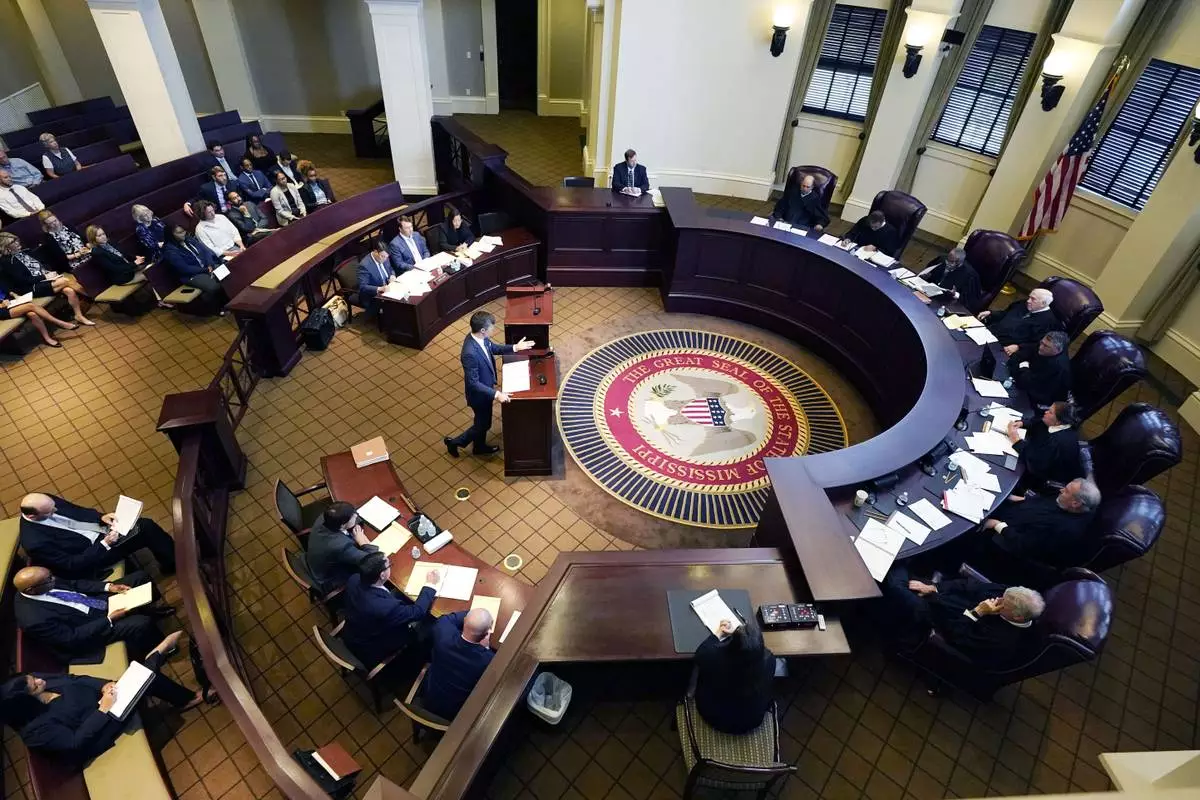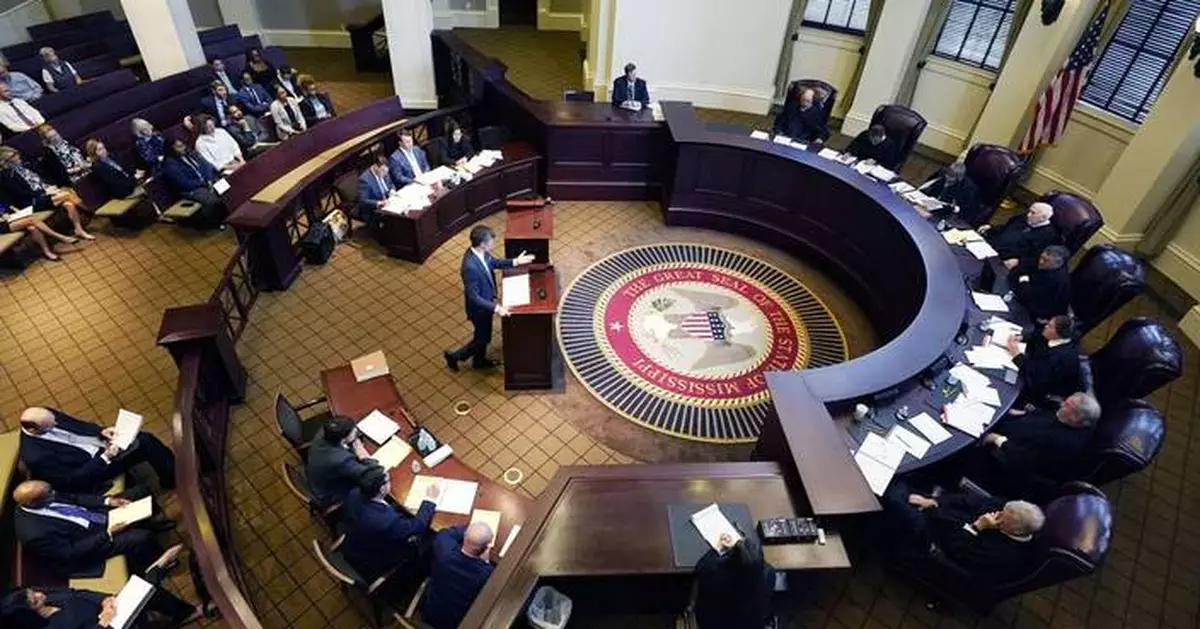WASHINGTON (AP) — Voters in central Mississippi and the state’s Delta and Gulf Coast areas will return to the polls Tuesday to resolve two judicial races in which no candidate received the vote majority needed in the Nov. 5 general election to avoid a runoff.
At stake are seats on Mississippi’s two highest courts, the state Supreme Court and the state Court of Appeals. Judges on both panels serve eight-year terms, the longest of any elected office in the state.
In the state Supreme Court race, Justice Jim Kitchens seeks a third term in District 1, also known as the Central District, which spans the state’s midsection from the Alabama border to the Delta region along the Mississippi River. Kitchens is the more senior of the Court’s two presiding justices, putting him next in line to serve as chief justice. He faces a challenge from Jenifer Branning, a Republican state senator in her third term. Branning was the top vote-getter in the general election, with 42% of the vote to 36% for Kitchens, with the rest split among three other candidates.
The courts are officially nonpartisan, but partisan fault lines have formed nonetheless in the Supreme Court race, with Democratic areas in the competitive district largely supporting Kitchens in the Nov. 5 election and Republican ones backing Branning. This was similar to the voting pattern in Kitchens’ 2016 reelection bid, when he won the support of the state's Democratic areas and his opponent mainly drew support from Republican areas.
Branning has branded herself a “constitutional conservative” and rails against “liberal, activists judges” and “the radical left.” She has the endorsement of the state Republican Party.
Kitchens has issued dissents in high-profile death row appeals, including a September case in which he sided with a man on death row for a murder conviction where a key witness had since recanted her testimony. In 2018, he dissented in a pair of death row cases dealing with the use of the drug midazolam in state executions. Kitchens has the endorsement of the Southern Poverty Law Center’s Action Fund, a civil rights organization.
Branning has had a sizable financial advantage over the incumbent since launching her campaign in February, thanks largely to a $250,000 personal loan she made to her campaign.
In the Court of Appeals race, Amy St. Pe’ and Jennifer Schloegel were the top two finishers in a competitive three-way contest on Nov. 5 to replace outgoing Judge Joel Smith. St. Pe’ placed first in the general election with 35% of the vote, followed by Schloegel with 33%. The Court’s 5th District is on the Gulf Coast in the southeastern corner of the state.
Here’s a look at what to expect on Tuesday:
Mississippi’s general election runoff will be held Tuesday. Polls close at 8 p.m. ET.
The Associated Press will provide vote results and declare winners in runoff elections for seats on the state Supreme Court and state Appeals Court.
Any voter in Supreme Court District 1 or Appeals Court District 5 who registered for the Nov. 5 general election may participate in the general election runoff.
Although Mississippi is reliably Republican in statewide elections, the Supreme Court’s Central District is home to much of the state’s Democratic strongholds, including the Jackson area and the counties in the Mississippi Delta region. Democrats Hillary Clinton and Joe Biden both carried the Central District in their 2016 and 2020 presidential campaigns, while Kamala Harris trailed Donald Trump by less than a percentage point in 2024.
In the general election, Branning led in 10 of the 11 counties Trump carried, while Kitchens carried 10 of the 11 counties that Harris, Biden and Clinton all won in their campaigns.
The 11 Trump counties made up about 62% of the total general election vote, compared to about 38% for the 11 Harris counties. In order to win, Kitchens would need to build on his leads in the counties he carried Nov. 5 and peel off enough of the votes cast for the three other candidates in areas that Trump won. That was his path to victory in his 2016 reelection race, when he carried the same 10 Harris/Biden/Clinton counties, as well as his home county of Copiah and six other counties.
The most populous of these Kitchens-Trump counties is Madison, which made up about 13% of the total district vote earlier this month. Kitchens carried Madison in 2016 with 50% of the vote but only received 36% this year, compared to 47% for Branning. Trump carried Madison three times, most recently with 57% of the vote. Kitchens also carried neighboring Leake and Scott counties in 2016, but Branning had outright vote majorities there on Nov. 5.
Warren County on the Mississippi River will be another key battleground in the race. Trump carried the county by close margins in 2016 and 2024 and lost by a close margin in 2020. Kitchens received 55% of the vote there in 2016, but Branning had a plurality there on election night.
The Court of Appeals race takes place in a district Trump carried three times with roughly 70% of the vote. The most populous areas to watch are the neighboring counties of Harrison (home of Biloxi and Gulfport) and Jackson (home of Pascagoula), both on the Gulf Coast.
The AP does not make projections and will declare a winner only when it’s determined there is no scenario that would allow the trailing candidates to close the gap. If a race has not been called, the AP will continue to cover any newsworthy developments, such as candidate concessions or declarations of victory. In doing so, the AP will make clear that it has not yet declared a winner and explain why.
According to a September tally by the Mississippi Secretary of State’s office, there were about 609,000 active voters in Supreme Court District 1 and about 449,000 active voters in Court of Appeals District 5. Voters in Mississippi do not register by party.
The last time a state Supreme Court race advanced to a runoff was in 2016. About 339,000 votes were cast for that seat in the general election, but the total fell sharply to about 38,000 votes for the runoff held later that month.
In the Nov. 5 general election, turnout was about 54% of registered voters in the presidential race, about 48% in the state Supreme Court race and about 50% in the Court of Appeals race.
About 18% of votes were cast before Election Day in the 2020 general election and about 7% in the 2022 midterm elections.
As of Wednesday, a total of 4,021 ballots had been cast before the runoff election.
In the Nov. 5 general election, the AP first reported results at 8:19 p.m. ET, or 19 minutes after polls closed. The election night tabulation ended at 2:35 a.m. ET with about 93% of total votes counted.
Read more about how U.S. elections work at Explaining Election 2024, a series from The Associated Press aimed at helping make sense of the American democracy. The AP receives support from several private foundations to enhance its explanatory coverage of elections and democracy. See more about AP’s democracy initiative here. The AP is solely responsible for all content.

FILE - Senate Elections Committee Chair Jenifer Branning, R-Philadelphia, explains a facet of an absentee-ballot bill during floor debate at the Capitol in Jackson, Miss., June 15, 2020. (AP Photo/Rogelio V. Solis, File)

FILE - Mississippi Supreme Court Presiding Justice James W. Kitchens asks a question, July 6, 2023, before the court in Jackson, Miss. (AP Photo/Rogelio V. Solis, File)

FILE - Mississippi Supreme Court justices including Justice Jim Kitchens, seated at right, fourth from top, listen to arguments, July 6, 2023, in Jackson, Miss. (AP Photo/Rogelio V. Solis, File)










